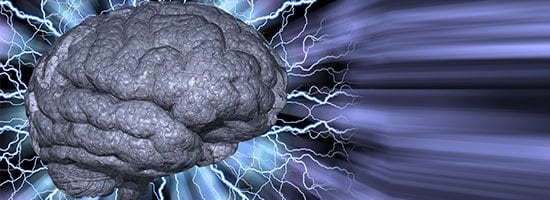
Among the world’s oldest drugs used for medicinal purposes, opiates can serve a useful purpose for patients dealing with severe or chronic pain. However, medications like OxyContin, morphine, and fentanyl are only meant to be used short-term because of the addictive nature of these drugs. The reason why opiates can create a physical and emotional dependence is because of the way they work within the brain. It’s also the brain’s response to opiates that can lead to addiction.
Stimulating Opioid Receptors
In a nutshell, opiates work when certain components of those drugs attach themselves to opioid receptors in the brain. It’s these receptors that determine how the brain interprets pain signals. Also found in the spine and digestive tract, these receptors are widely distributed throughout the brain. The reason for these receptors is because the body naturally produces pain-relieving molecules (endorphins) similar to morphine that affect pain sensations by going to these receptors. When stimulated, these receptors often produce:
- Improvements in mood
- Added motivation or energy
- Pain relief
Giving the Brain Too Much of a ‘Rush’
The brain has a natural stop system called the prefrontal cortex. Normally, it kicks in to balance out the rush that comes from the endorphins naturally produced by the body. Opiates flood the brain with a huge rush of pleasure chemicals that activate dopamine pathways. The brain’s natural start and stop system is overwhelmed and doesn’t turn off.
Stopping the Production of Endorphins
Because of all the extra “pleasure chemicals” in the brain in the form of opiates, the natural production of endorphins stops. This is because there is no need for such chemicals if they are being delivered in another form. As a result of this inactivity, cells that once produced endorphins either die or go into a type of sleep mode. Consequently, the brain becomes dependent on opiates.
Creating a Craving in the Brain
When opiates are no longer taken, the brain isn’t able to automatically begin its natural production of endorphins again. It takes time for the brain to recover and go back to the way it used to handle pain. It’s this period of opiate withdrawal that often creates a craving or need that’s both physical and emotional. Some people aren’t able to deal with the sudden shift in mood that occurs as the brain adjusts.
Because of the way the brain responds to opiates, efforts are being made to carefully monitor patients who are prescribed these drugs. For individuals who are especially susceptible to developing a dependence or concerned about such risks, alternatives to pain medications like acupuncture, biofeedback, and chiropractic manipulations may be worth considering.


